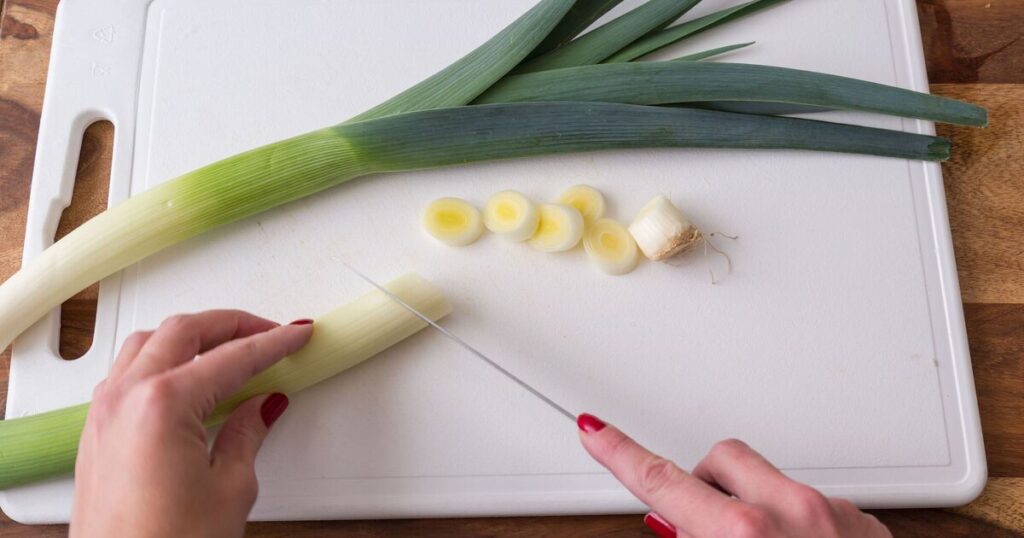
Chopping boards are one of the most-used tools in any kitchen. Whether you’re slicing vegetables or preparing meat, they’re essential for cooking at home. But many people don’t realise that a worn-out chopping board could be doing more harm than good. While they may look harmless, experts say old boards could be hiding a serious risk.
The warning comes from food experts at Knorr, who have urged people to take a closer look at their boards before using them. “If your board is covered in scratches, buy a new one!” they said. “Bacteria love to hide inside the grooves.” Bacteria trapped in the cuts and grooves of a chopping board can multiply quickly, increasing the chances of cross-contamination, which is one of the most common causes of food poisoning.
The experts at Knorr recommend using separate boards for raw and cooked foods, cleaning them with hot soapy water after each use, and avoiding tea towels for drying.
On top of that, some concerns have been raised about microplastics from damaged plastic chopping boards.
A peer-reviewed study published in Environmental Science & Technology in 2024 found that scratched plastic boards can release tiny plastic particles during use, especially when cutting vegetables, meat or fish.
The study, titled Cutting Boards: An Overlooked Source of Microplastics in Human Food?, focused on boards made from common materials like polyethylene and polypropylene.
Researchers found that simply slicing food on a scratched surface could cause microplastics to stick to the ingredients.
They estimated that someone using a plastic cutting board regularly could be exposed to around 50 grams of microplastics per year, which is roughly the weight of a chocolate bar.
Microplastics are particles smaller than 5mm and are increasingly found in oceans, soil, and even inside the human body.
Previous studies have linked them to inflammation, cardiovascular risks, and long-term health concerns.
But despite the findings, scientists say the level of risk from cutting boards alone appears to be low.
Dr Manish Shetty, assistant professor of chemical engineering at Texas A&M University, told NBC News: “Plastic cutting boards are generally safe to use,” adding that most microplastic particles are likely washed off during cleaning.
Dr Hoaran Wei from the University of Wisconsin-Madison also weighed in. “The study didn’t find any toxicity effects, which is a good sign,” he said.
He explained that while the research highlights a possible source of microplastics, there’s no strong evidence yet that it poses serious harm. “This is a safe process, based on what we know so far,” he added.
Still, both experts agreed that more research is needed to fully understand the health impacts of microplastics over time.
In the meantime, the advice remains simple: replace your chopping board if it’s scratched and follow basic hygiene rules to stay safe in the kitchen.
 Latest World Breaking News Online News Portal
Latest World Breaking News Online News Portal






